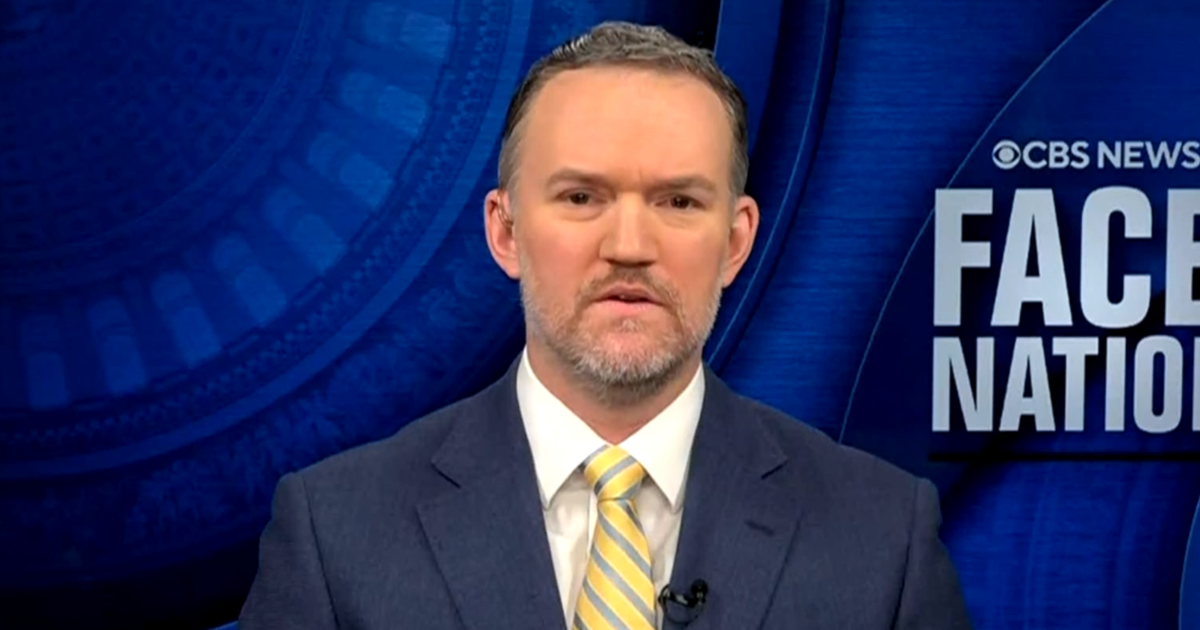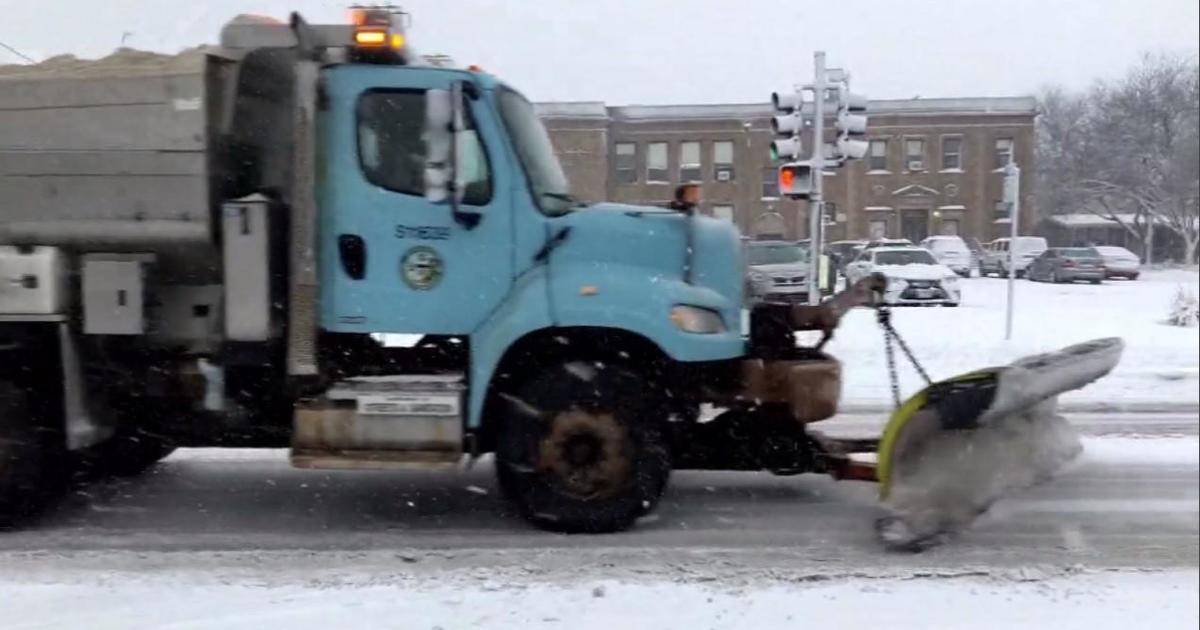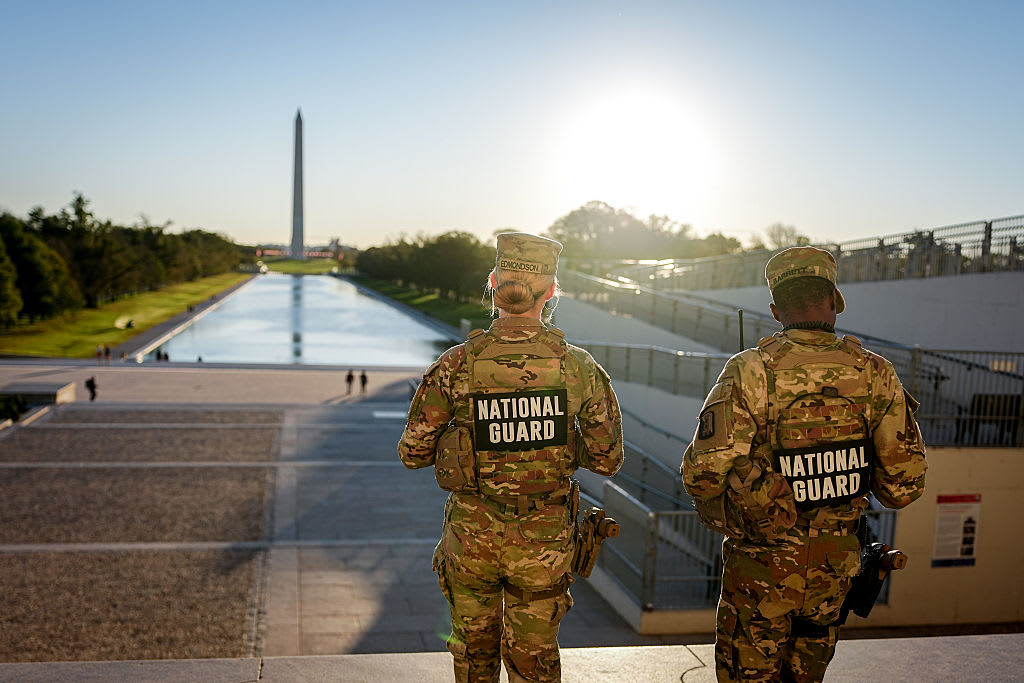Transcript: Chicago Mayor Brandon Johnson and Denver Mayor Mike Johnston on "Face the Nation," Dec. 31, 2023
The following is a transcript of an interview with Chicago Mayor Brandon Johnson and Denver Mayor Mike Johnston that aired on Dec. 31, 2023.
MARGARET BRENNAN: For more on how immigration is affecting communities across the US, we turn now to two Democratic mayors: Chicago's Brandon Johnson and Denver's Mike Johnston. Gentlemen, welcome to Face The Nation.
MAYOR BRANDON JOHNSON: Good morning.
MAYOR MIKE JOHNSTON: Thank you for having us.
MARGARET BRENNAN: Thanks for joining us. And, Mr. Mayor of Chicago, I want to put to you a question about what seems to have developed overnight. There are reports of a plane from Texas landing in Chicago carrying more migrants that arrived around 1am. I'm wondering if Texas officials gave you any heads up, who's on the plane, what happens next?
MAYOR JOHNSON: Well, what we have is clearly- clearly an international and federal crisis that local governments are being asked to subsidize, and this is unsustainable, none of our local economies are positioned to be able to carry on such a mission. And what we have attempted to do is to create structure and some coordination around this- this humanitarian crisis. And unfortunately, the governor of Abbott, the governor of Texas, Governor Abbott, is determined to continue to sow seeds of chaos. And last night, and several nights before, a number of buses continued to arrive in the city of Chicago, throughout the country without any coordination. And now he's taken on this very dangerous task of placing individuals on airplanes and flying them into our various cities. This is certainly a matter of- of not just- of our national security. But it's the type of chaos that this governor is committed to administering.
MARGARET BRENNAN: Mr. Mayor- Mr. Mayor of Denver, to be clear here, I know that you have looked at New York and Chicago making decisions to restrict bus arrivals. Are you trying to take measures in your city to restrict them from even arriving in the first place?
MAYOR JOHNSTON: No, all we want is a system that is- that is humanitarian for both the new folks that are arriving and for our cities and our city employees. And so, we understand there will be an inflow, we have already had 35,000 migrants arrive to Denver, we've successfully helped them integrate into the country here. What we don't want is people arriving at 2:00 in the morning at a city and county building with women and children outside in 10-degree weather and no support. And so, we want buses here to do what every other bus does, which is land at a bus station and a bus stop at hours when we can have staff there to receive them and to direct them towards services. And so we understand the flow is coming. We just want it to be coordinated, and in a humanitarian way, which we think makes it effective for the city and for those newcomers. That means things like arriving 8:00-5:00, Monday to Friday, with notice.
MARGARET BRENNAN: Right. And I understand that you haven't been able to get the state of Texas to stop sending people. But when it comes to your party's leadership, as Senator Graham said, you have asked the White House for more help. Did they respond to your public call?
MAYOR JOHNSTON: Yeah, we've talked to the White House. We've talked to leadership there, and we think they agree on the core needs that we see. I mean, we think this is a solvable problem. There are key priorities we need. We need federal dollars to help support our work here in the cities. We also need federal dollars for more support at the border, the ability to adjudicate asylum claims more quickly so they can be done in 90 days and not in four to six years. That makes a massive difference. If we have the resources for cities to support us, if we have, when people arrive, we actually have work authorization when they get to a place like Denver so we can put them to work, which is what they want. And we have a coordinated entry plan where it's not just the governor of Texas deciding what cities to send people to, but it's actually the way we've welcomed asylees in this country for years. When we had asylees from Afghanistan or Ukraine, we had federal support, we had coordinated entry, we had work authorization and those efforts worked quite smoothly. America knows how to do this. We think we can do it here.
MARGARET BRENNAN: Right. Those are different programs for those refugees. But I hear your point on the work authorization. Mayor Johnson of Chicago, did the White House give you what you need in your public call this week?
MAYOR JOHNSON: Well look, I think there's no secret here that we need comprehensive- comprehensive immigration- immigration reform. This comprehensive immigration reform would certainly transform this situation. In fact, it solves this- this crisis. What we have said repeatedly is that we need Congress to act to provide the resources that are needed in order to- to carry out this mission. But what we can't have is a governor in the state of Texas, acting the way he is acting and quite frankly, the rogue buses that are being dropped off across this country in the middle of the night, leaving people with- with no real support at all, no coordination with the local municipalities. That type of chaos is- it's certainly dividing our country and we need better coordination between all levels of government to be able to respond to this mission.
MARGARET BRENNAN: When you reach out to the governor, I'm- I'm assuming you have, do you get any response?
MAYOR JOHNSON: Well, we sent it into our delegation to the border to see firsthand what's happening at the border. I have actually spoken with leaders of the Mexican government. They're having the same challenges that we're having here in America. So there has to be a real coordinated effort to be able to respond to this crisis, again, putting people on airplanes, and dropping them off in the city of Chicago and Denver, New York, without any coordination, without a manifest. I don't know how many federal laws or aviation laws he can be violating. But this type of chaos is not what's needed in this moment. We need a coordinated effort between all levels of government to ensure that this humanitarian mission, that's an international crisis, is met with the type of civility and sanctity that's required.
MARGARET BRENNAN: Understood, I mean, I checked the weather and both of your cities, it's 32 degrees in Chicago, it's 25 degrees in Denver. I'm guessing someone walking across from Mexico isn't outfitted for that kind of frigid arrival.
(CROSS TALK)
MAYOR JOHNSTON: We say that every day. Folks arrive in T-shirts and sandals.
MARGARET BRENNAN: Yeah, it's- I wanted to talk about this more, but I have to take a commercial break. So, if you would both stay with us. As we do that, I'll be right back with you and be back with you all in a moment. So stay with us.
(COMMERCIAL BREAK)
MARGARET BRENNAN: Welcome back to Face The Nation. We pick up where we left off with Denver Mayor Mike Johnston and Chicago Mayor Brandon Johnson. Gentlemen, I do want to pick back up on one of the points you raised. Mr. Johnston of Denver, The White House says it takes 30 days to process work permits and temporary protected status for- for some of these migrants. You're saying you need people to arrive ready to work. What happens in that 30-day period? Why is that not fast enough?
MAYOR JOHNSTON: Yeah, we were grateful for the government's action, including the Secretary's action to provide temporary protective status for Venezuelans who arrived before July 31. We advocated for that, they made that change, that was a huge help. The challenge now is Venezuelans who have arrived in the last several months are not eligible for that temporary protective status, they often don't have a path to work authorization, and they may have an asylum claim that is three or four or five years in the waiting until that claim is heard. And so the challenge is on our city streets, we have folks that are here who, whenever I talk to migrants, I was with them yesterday, they'll just say, "I only want one thing," which is the ability to work. And we have employers calling me every day saying, "hey, Mayor, I have open jobs, can I please hire these folks," but we have folks that right now are currently without a path to work authorization. We'd love to see that path to work authorization expand for more recent arrivals the same way the Secretary helped it be possible for those who arrived before July 31.
MARGARET BRENNAN: And that was done through- through federal authority through the administration. But changing the law would require Congress to alter some of these programs. I thought it was interesting, Mayor Johnson of Chicago, you also made the point that when it came to Afghans and Ukrainians, they arrived without a problem in your city, and that you would like to replicate that program for everyone.
MAYOR JOHNSON: That's exactly right. There are 30,000 Ukrainian refugees that are in the city of Chicago right now. The difference is, of course, they were fully supported by the federal government, and they were able to acclimate themselves and integrate into our economy. We have a number of asylum seekers from Central and South America in the continent of Africa. And the question is, why are we not providing that same support and treatment here? Look, the bottom line is this. We need Congress to act, and we need them to do it expeditiously. But we cannot have the type of chaos that continues to come from the state of Texas. And clearly, the governor of Texas, Governor Abbott, is certainly afraid and mad. But he can't cut his own nose off. Right? And so, what we're simply saying, what I've done over a month ago, we provided an ordinance that would ultimately provide some structure and some coordination around when buses should arrive. Should not be dropping people off in the middle of the night in the middle of nowhere without the type of support that's needed.
MARGARET BRENNAN: Very quickly before I let you go, I read, Mayor Johnson of Chicago, less than two weeks ago, a five-year-old boy died after falling ill in a migrant shelter in your city. What state are people showing up in and what is the health risk here, if any?
MAYOR JOHNSON: Well, our condolences are still with the family and we continue to pray for the family who lost their- their- their child. I'm a father of three. This is just an unimaginable pain. But what is very clear is that, not only are we providing mental health related services, as well as vaccinations and health screenings, and providing medical health care for these families when they arrive, the moment they get off those buses, we're not seeing that same treatment on the border. In other words, there's no health screenings, no vaccinations. That process at the border is absolutely raggedy and reckless. But we cannot have a governor who decides that he's going to cling to the vestiges of Jefferson Davis, when we should be pulling to the hopes and aspirations that were left by Frederick Douglass. We have to have a coordinated response to this humanitarian crisis. We cannot allow chaos to dictate and to divide this country.
MARGARET BRENNAN: Well, we will wait to hear from Governor Abbott's office in response to that. Mr. Mayors, thank you both for joining us. We'll be right back.


